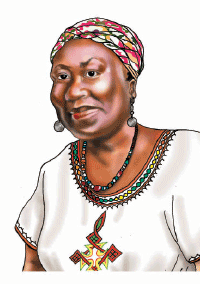Wema Bank Plc. advertised a 70th anniversary commemorative lecture whose topic, “Why Nations Succeed”, caught the eye of not a few people. The lecture, scheduled to hold on Monday, 20th April, 2015, was to be delivered by a renowned scholar and co-author of the book Why Nations Fail, Professor James A. Robinson, Professor of Government at Harvard University. One can only hope that the lecture, along with the contributions from the five eminent discussants advertised, will be given a wide circulation so that non-participants at the event will be able to benefit from the deep thoughts and insights that must have been shared.
Coincidentally, the title of Chapter 20 of Loren Cunningham’s book, The book that transforms nations (2007, YWAM Publishers), which my reading group was scheduled to discuss on that same Monday, 20th April, was “Why nations are rich or poor”, quite in line with the topic of the Wema Bank lecture. Permit me to share in this piece some important insights offered by Mr. Cunningham. Before going on to do so, however, I wish to recall that the concern expressed in those topics very frequently agitate the minds of millions of people around the world, confronted as we are with the stark reality of a world divided fairly neatly into two blocks: the Haves and the Have-Nots. In my book, Daybreak Nigeria – This Nation Must Rise! (2014, Prestige Publishers), I refer to an encounter between a New Guinean man named Yali and an American anthropologist, Jared Diamond. After a certain amount of interaction between the two, Yali posed to Diamond a question which had for long troubled his mind: why was it that white people had so much “cargo” while New Guineans, Yali’s own people, had so little of it? Cargo represented for Yali all those material possessions which are indicators of affluence and societal development.
According to Loren Cunningham, the reasons for this division are not far-fetched, and some of the experiences he recounts are quite revealing. For example, a Filipino taxi driver once complained to him about how corrupt his country’s president was. When asked for evidence, the man replied that the president had “even paid people to vote for him”. When questioned further about how he knew that the president had done such a thing, the man answered: “Well, he paid me, and I voted for him.” He had seen corruption in the president, but not in himself! A further experience narrated was that of a meeting held with former President Mathieu Kerekou of Benin Republic and his cabinet. After their discussions, a member of the cabinet asked a question very much like Yali’s: “Mr. Cunningham, why are we so poor? We are one of the fifteen poorest nations on earth.” He then attempted to answer his own question by offering the explanation that their poverty was due to their lack of natural resources. It is Mr. Cunningham’s response to this point that constitutes the main point of this article.
Mr. Cunningham countered by asking the cabinet members to consider Switzerland, a country with very few resources but known by all to be very rich, nonetheless. Switzerland’s prosperity, he pointed out, was due to the fact that people wanted their products. Let me quote Mr. Cunningham directly:
“Whether they make a chocolate bar or a watch, everyone knows the Swiss will make it with precision. Furthermore, you can’t have precision without integrity. The Swiss have integrity. They also have a high regard for justice and generosity – every village has some kind of charitable project, especially for refugees. You need a critical mass of people who have integrity, who have character… Integrity is so important for a country’s economy. We don’t trust people who cheat to get the critical jobs, like engineering or constructing skyscrapers or manufacturing planes. Integrity is also key when handling investments, banking, and transactions of all kinds. If a person cheats, he or she will cheat on big things as well as little ones. You don’t want dishonest people building your bridges, because the bridges won’t stand. Neither do you want dishonest people handling your retirement funds.”
Mr. Cunningham’s blunt closing remark to President Kerekou’s cabinet was that Benin Republic would have prosperity when there were enough people – a critical mass – with integrity and character. As we read those lines last Monday, my mind immediately conjured up the images of airplanes falling from our skies and buildings under construction crashing to the ground which we witnessed repeatedly not too long ago. We seem not to recognise that dishonesty has serious consequences not just for the individuals involved, but for the entire nation. The author had earlier identified what he referred to as “the evil trinity of unbridled greed, corruption and injustice” as the three things that impoverish a nation, making it impossible for its citizens to fulfill their human potential.
With the approaching inauguration of General Muhammadu Buhari as our President come May 29th, 2015, a door of opportunity is flung wide open before us – opportunity to re-orient ourselves in the direction of integrity, character and prosperity. Pastor Tunde Bakare was quoted in The Punch newspaper of Wednesday, 22nd April, 2015 as having counseled General Buhari regarding appointments into his cabinet, stating that the problem with Nigeria is that “the best, the most competent, the fittest and people with capacity are not the ones running our affairs.” We trust that the General is listening.















